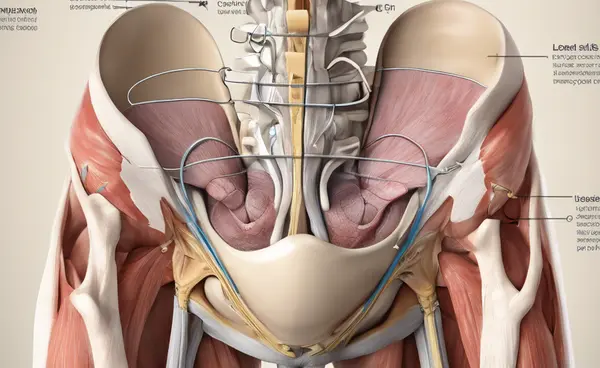Sneezing or coughing is a powerful and sudden action that can embarrassingly trigger an involuntary loss of urine, a condition known medically as stress urinary incontinence (SUI). SUI is more common than one might think, affecting millions of individuals, predominantly women.
The Physiology Behind SUI
Stress urinary incontinence occurs when the pelvic floor muscles, which support the bladder and urethra, are not strong enough to withstand sudden pressure (stress) from actions like sneezing, coughing, laughing, or lifting heavy objects.
Why Sneezing Causes Urine Leakage
- Sudden Pressure: A sneeze/cough causes a quick increase in intra-abdominal pressure.
- Weak Pelvic Muscles: If the muscles are weak, they cannot contract effectively to prevent urine from escaping.
- Urethral Support: When the support for the urethra is insufficient, it can move downward during a cough or sneeze, allowing urine to pass.
Factors Contributing to SUI
- Pregnancy and Childbirth: These can stretch and weaken the pelvic floor muscles.
- Aging: Muscle strength naturally diminishes with age.
- Hysterectomy: Surgical removal of the uterus can affect pelvic floor strength.
- Obesity: Excess weight increases abdominal pressure.
- Menopause: Estrogen, a hormone that helps maintain muscle strength, decreases during menopause.
Strategies to Reduce or Stop SUI
- Pelvic Floor Exercises (Kegels):
- Strengthen the pelvic floor muscles by repeatedly contracting and relaxing them.
- Aim for three sets of 10-15 repetitions daily.
- Maintain Healthy Weight:
- Reduce excess body weight to decrease abdominal pressure on your bladder.
- Avoid Bladder Irritants:
- Foods and drinks such as coffee, alcohol, and spicy foods can irritate the bladder, increasing urgency.
- Quit Smoking:
- Smoking can lead to chronic coughing, which stresses pelvic floor muscles.
- Bladder Training:
- Delay urination to train your bladder to hold urine for longer periods.
- Physical Therapy:
- A physical therapist specialized in pelvic floor dysfunction can provide personalized exercises and training.
- Surgical Options:
- For severe cases, surgical procedures like sling surgeries or urethral injections are available.
- Pessary Use:
- A vaginal pessary can help support the bladder neck and prevent leakage.
Conclusion
Understanding the reasons behind stress urinary incontinence is the first step toward managing it. By incorporating lifestyle changes and exercises specifically designed to strengthen the pelvic floor, individuals can significantly reduce or even stop the occurrence of urinary leakage during activities such as sneezing and coughing. For persistent or severe cases, it is crucial to seek medical advice for potential treatments that can offer relief and improve quality of life.









